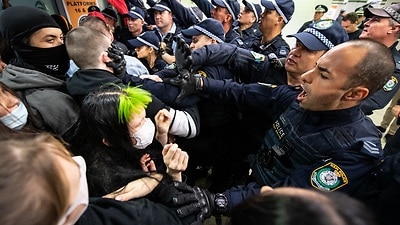It is not easy to speak up. It is also not easy to stay silent. But I would much rather speak up now - seven years later - than not at all, and do my small part to encourage others to stand with me
The Australian's Nicola Berkovic reported on JUNE 27, 2020:
........a NSW Supreme Court judge was told (that former High Court judge Dyson) Heydon had made unwanted advances towards one of its young female employees two years ago but did not take any action Dhanya Mani, 26, was working as a tipstaff to NSW Supreme Court judge Guy Parker in 2018 when she told him about alleged harassment by Heydon.
Parker informed NSW Chief Justice Tom Bathurst only this week of Mani’s allegations.
The court says Mani did not ask Parker to take the matter any further, but she told The Australian that she had hoped when she raised the matter he would do something about it.
Bathurst has now asked the state’s judicial commission to prepare an education program for judges on what to do if an allegation is made. The court says judges were not previously trained on the issue because it was generally expected they would have been educated in their previous careers.
Mr Bathurst, and the Attorney General Mark Speakman SC, have the option of treating complaints of sexual harassment as complaints of threatening and intimidating behaviour, which is far easier to prove, and thus less of a strain on complainants. Mr Bathurst, AG Speakman, and the NSW LPAB which Bathurst chairs and Speakman oversees, have found threatening and intimidating behaviour to be evidence that a person is not fit and proper for admission to practise. A finding of threatening and intimidating behaviour can therefore be relied on to disbar, remove or otherwise publicly sanction any judicial officer.
The threshold for what constitutes threatening and intimidating behaviour is quite low; for example a PLT student questioning the qualifications and experience of his or her instructors, who are senior judicial officers, can constitute threatening and intimidating behaviour, regardless of the evidence against the instructors.
Additionally, reporting a senior lawyer to the NSW LPAB and its chairman, the Chief Justice, can be construed as threatening and intimidating behaviour against all concerned. Similarly communicating such matters to journalists can be considered threatening and intimidating, despite the decision of the NSW Supreme Court in Carlovers Carwash,which concerns journalists, but which has implications for whistleblowers as well.
Clearly, if a senior judicial officer can be considered to be threatened and intimidated by the complaints of a PLT student, so can a junior female lawyer who is the subject of unwelcome advances from a senior judicial officer.The case ACT MLA Elizabeth Lee demonstrates why such advances should be treated as cases of threatening and intimidating behaviour(see tweet above).
That Mr Bathurst and AG Speakman do not see it open to them to immediately pursue all complaints of sexual harassment as matters of threatening and intimidating behaviour is hard to comprehend.
The Chief Justice's request that the "judicial commission... prepare an education program for judges on what to do if an allegation (of sexual harassment) is made" is unnecessary, at best.
END










